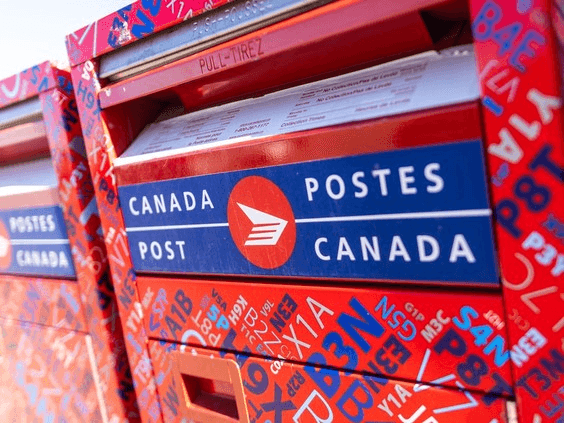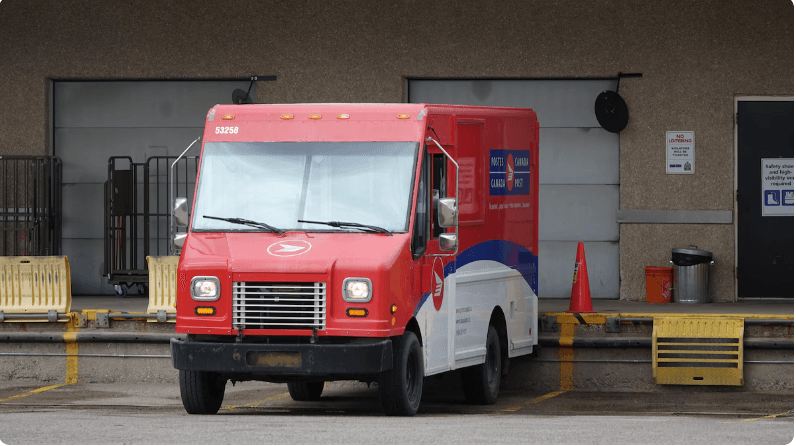
The ongoing nationwide strike of Canada Post workers has sparked widespread concerns, especially among small and medium-sized businesses in Saskatchewan. This strike, involving approximately 55,000 members of the Canadian Union of Postal Workers (CUPW), has disrupted mail services at a critical time, with the holiday season approaching. For businesses relying on the state-run postal service to ship goods domestically and internationally, the strike has created significant hurdles, forcing them to reassess their logistics and customer relations strategies.
This article delves into the impact of the strike, the perspectives of affected businesses, and the broader implications for Saskatchewan’s economy.
Overview of the Strike

The labor action by CUPW stems from stalled negotiations with Canada Post that have persisted for over a year. Workers are demanding a 23% wage increase over four years, while the postal service has only offered an 11.5% raise. Other key issues include improved retirement benefits and enhanced health and safety conditions.
In October, over 95% of CUPW members voted in favor of strike action, underlining their frustration and resolve. As a result, Canada Post’s operations have been brought to a standstill, with mail and parcels neither processed nor delivered during the strike. The organization has also announced that no new shipments will be accepted until the dispute is resolved.
Impact on Saskatchewan Businesses
Small Businesses Feel the Heat
Local businesses in Saskatchewan, like SaskMade, which specializes in artisanal products such as jams and hot sauces, are among those bearing the brunt of the postal disruption.
Stephana Stefanyshyn-Alonso, team leader at SaskMade, shared her concerns:
“This is undoubtedly a hurdle as the holiday season ramps up. We’re keeping orders, but we can’t distribute products as quickly.”
While private courier services offer an alternative, the associated costs are often prohibitively high, further squeezing small businesses’ already tight profit margins.
Similarly, The Wine Cellar, a boutique wine shop in Regina, has seen its logistics plans disrupted. Owner Heike Edwards explained:
“We have clients outside the city who occasionally want us to send small packages. This won’t be possible now, and it’s going to hurt us. I think it’ll affect everyone in some way.”
Delays in Deliveries and Financial Strain
Businesses relying on timely deliveries to maintain customer satisfaction face added stress. The strike also coincides with a period when many consumers finalize their holiday purchases, compounding the risk of lost revenue and strained client relationships.
Government and Union Perspectives
Union’s Justification
CUPW maintains that the strike is necessary to address workers’ grievances, including stagnant wages that have not kept pace with inflation. Brahm Enslin, President of CUPW Local 820 in Saskatoon, empathizes with business owners but stresses the importance of their demands:
“We regret being in this situation. However, our members seek a negotiated solution. Inflation has increased significantly, and our wages haven’t kept up.”
CUPW has emphasized that the strike aims to secure fair compensation and better working conditions rather than disrupt businesses or individuals intentionally.
Government’s Mediation Efforts
In response to the escalating crisis, federal Labor Minister has appointed Peter Simpson as a special mediator to facilitate negotiations. While talks are underway, no immediate resolution appears in sight.
On the provincial front, Saskatchewan’s government has activated contingency plans to minimize disruptions. The Ministry of Social Services is working to ensure benefit payments reach recipients through direct deposits. Meanwhile, eHealth Saskatchewan has advised residents to explore online options for processing applications for health cards and vital certificates.
Municipal governments, including those in Saskatoon and Regina, have urged residents to use alternative payment methods for taxes and utility bills, such as online platforms or drop-off boxes.
Broader Implications of the Strike
Economic Ripple Effects
The postal strike’s economic impact extends beyond immediate logistical challenges. Retailers, especially those dependent on Canada Post for e-commerce deliveries, face the prospect of declining sales as consumers opt for in-person shopping or competitors with more reliable shipping options.
Local producers and artisans, who typically rely on affordable postal services to reach national and international markets, are at risk of losing critical holiday revenues. For many, the strike highlights the need for diversified delivery solutions and greater resilience in supply chain management.
Consumer Behavior Shift
The strike is prompting consumers to reconsider their shopping habits, with many opting for retailers offering in-store pickup or private courier delivery. This shift may accelerate the adoption of omnichannel retail strategies among businesses in Saskatchewan.
Union Movements and Inflationary Pressures
Labor strikes, like the one at Canada Post, highlight broader issues of wage stagnation amidst rising living costs. As inflation erodes purchasing power, unionized workers are increasingly vocal about their demands for better compensation. Businesses and policymakers must address these concerns to ensure long-term economic stability.
Strategies for Businesses Amid the Strike
Exploring Alternative Shipping Options
Businesses like SaskMade are already experimenting with private courier services, despite the higher costs. In the long term, developing partnerships with multiple logistics providers can mitigate risks associated with reliance on a single service.
Enhancing Customer Communication
Transparent communication with customers about potential delays and exploring flexible options, such as order pickups or local delivery, can help maintain trust during disruptions.
Adopting Digital Solutions
Encouraging customers to shift to electronic payments and correspondence can reduce dependence on physical mail. This shift aligns with broader trends toward digital transformation in the retail and service sectors.
Outlook for Resolution
While the Canada Post Strike underscores significant challenges for businesses, workers, and consumers alike, mediation efforts offer hope for a resolution. As talks progress, both sides must find common ground to prevent further economic fallout.
The strike also serves as a wake-up call for businesses to adopt resilient strategies and diversify their operations. Whether through digital transformation, enhanced logistics planning, or greater reliance on local networks, adapting to these challenges will be essential for long-term success.
In the meantime, Saskatchewan businesses continue to navigate these uncertain waters with resilience and determination, embodying the spirit of adaptation in the face of adversity.
In conclusion, the Canada Post strike is a stark reminder of the interconnectedness of labor relations, consumer behavior, and business operations. While the immediate challenges are significant, they also present opportunities for growth, innovation, and collaboration that could benefit all stakeholders in the long run.


